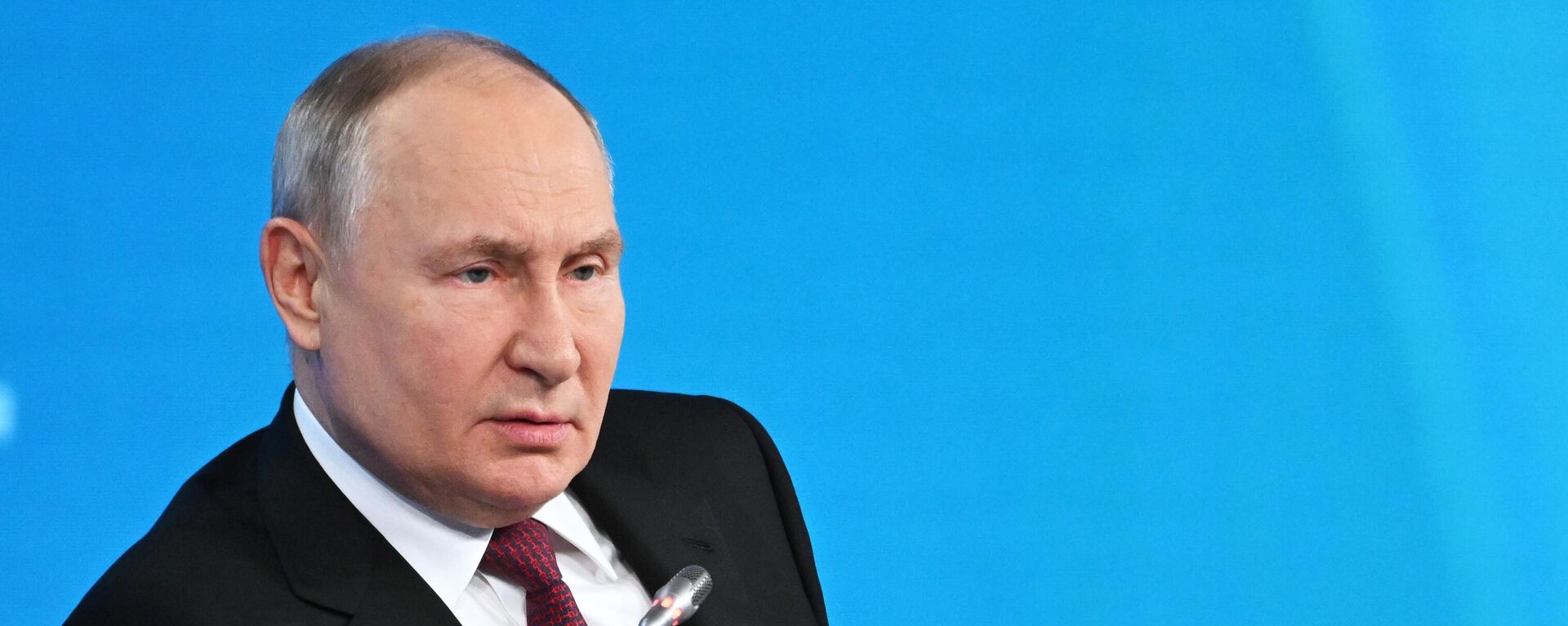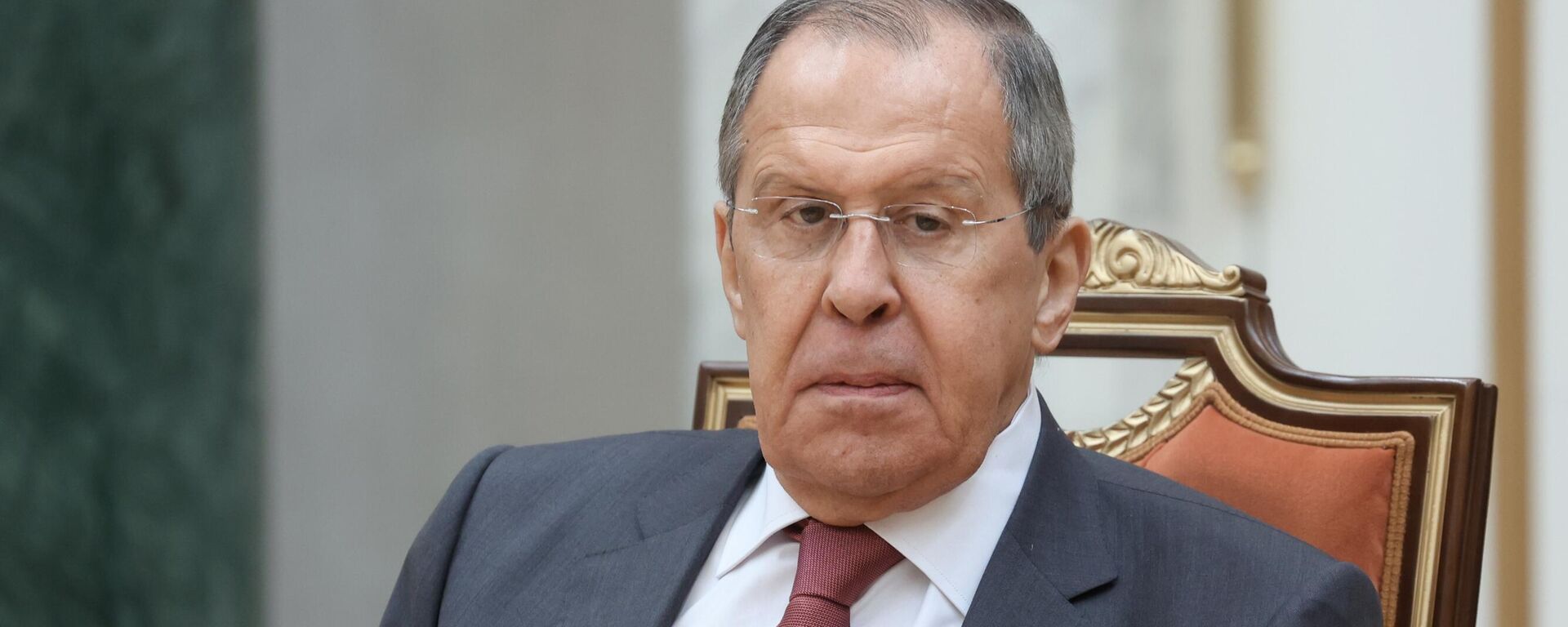Putin's Address at BRICS Summit on Gaza Aligned With Arab-Muslim Vision – Mideast Experts
16:49 GMT 21.11.2023 (Updated: 10:27 GMT 30.01.2024)
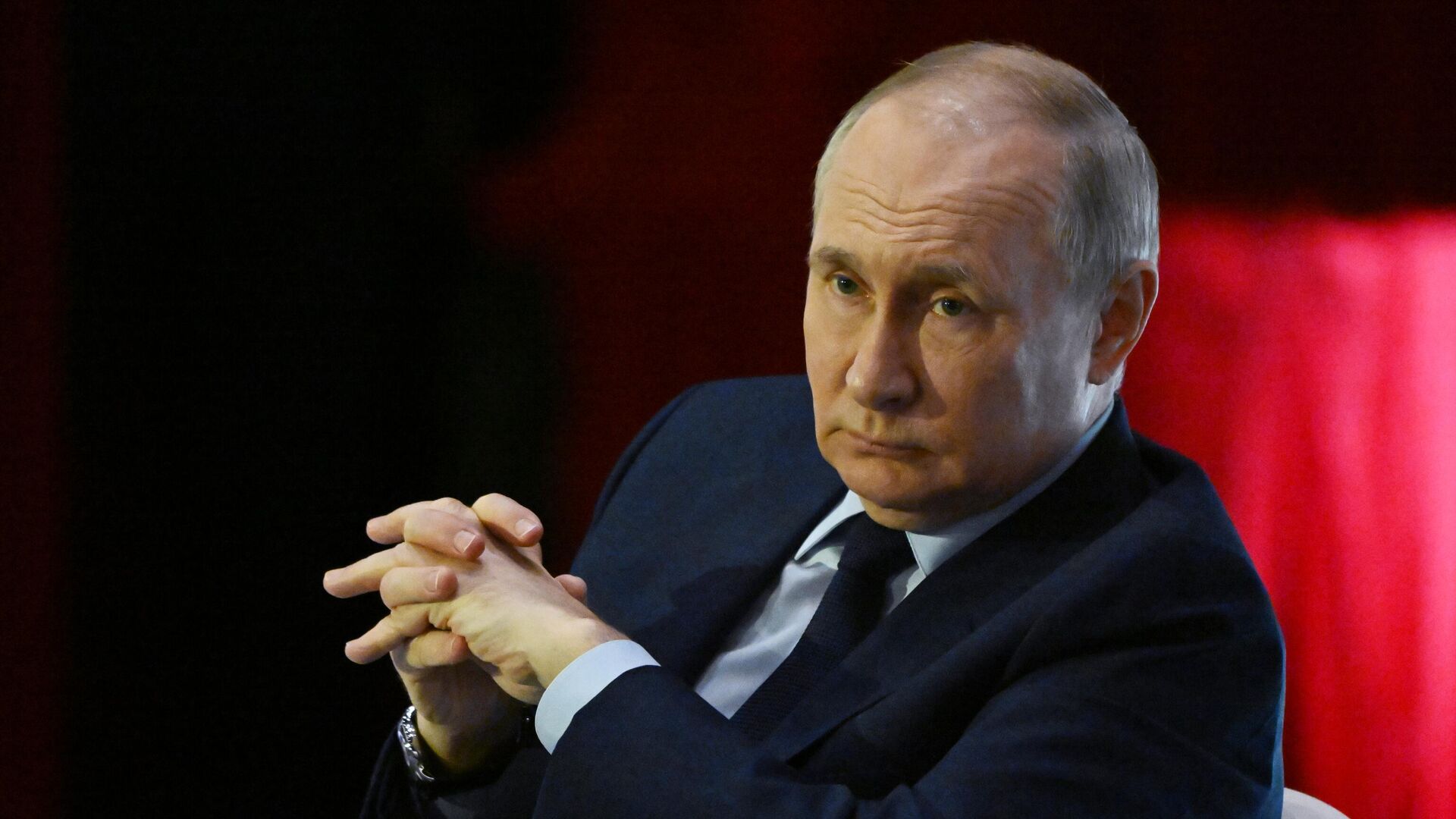
© Sputnik / Sergey Guneev
/ Subscribe
An extraordinary online BRICS summit on the escalation of the situation in the Middle East took place on Tuesday, with Russian President Vladimir Putin criticizing the US for monopolizing mediation efforts.
Leaders of BRICS countries including new applicants convened an emergency virtual meeting on November 21, as the US and Israel continue to oppose a ceasefire in Gaza amid skyrocketing civilian casualties and an unfolding humanitarian catastrophe.
The non-stop violence is the result of Washington's "monopolizing" the negotiation process and blocking the Middle East Quartet of international mediators – which, apart from the US includes Russia, the UN and the EU – from stepping in and proposing peace solutions, as Vladimir Putin outlined during the online gathering.
"The timing of the meeting is not a surprise because what we see, there is an ongoing initiative all around the world for a full-fledged ceasefire," Dr. Hasan Selim Ozertem, Ankara-based security and political analyst, told Sputnik. "The humanitarian situation is getting worse and worse each and every day. And up until now, we have witnessed the killing and massacre of 13,000 Palestinians, in the aftermath of Hamas attacks on October 7, which also caused more than 1,000 Israelis to lose their lives. So what we see in the north of Gaza, it's not the place that everybody knows before because there are only rubbles, no infrastructure, but only the boots of the Israeli forces."
Meanwhile, it is hardly coincidental that BRICS became a platform for the Mideast crisis summit, according to Dr. Hesham Alghannam, Saudi political scientist and Director General of the Strategic Studies and National Security Programs at Naif Arab University for Security Sciences.
"The BRICS nations wield substantial economic and political influence on the global stage," Alghannam told Sputnik. "Their primary objective is to convey a resounding message that the hostilities against Gaza must cease, emphasizing that the longstanding conflict between Palestinians and Israelis should be resolved in accordance with the Arab Peace Initiative."
Back in August, several Arab and Muslim nations applied to join BRICS, the club of major developing economies. Among those who are expected to become full-fledged members in 2024 are Egypt, Iran, Saudi Arabia and the United Arab Emirates (UAE). These four countries have recently raised their voice in support of the Palestinian cause, Alghannam noted, adding that "their stance on the Israel war on Gaza aligns closely with that of Russia, China, and South Africa."
"An important implication of this meeting also shows that BRICS, which was established as a kind of an alternative economic structure almost a decade ago, now is trying to engage with not only economic problems, but also political issues. So in this regard, this is a peculiar development that BRICS countries are trying to find a solution or gear messages to the international crisis," added Ozertem.
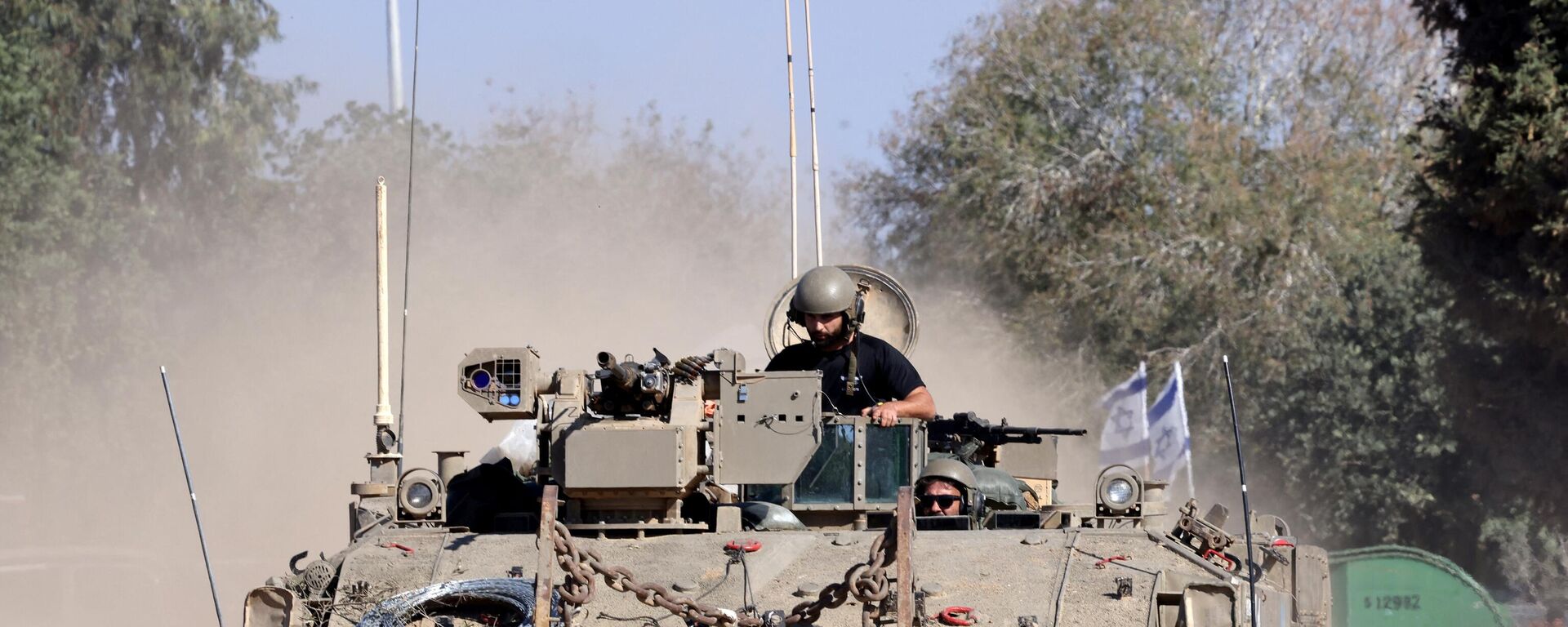
18 November 2023, 15:29 GMT
Nations Seeking Ways to Implement Ceasefire in Gaza
Last month, Saudi Arabia and other Arab states, in collaboration with Russia and China, endeavored to advocate for a ceasefire in Gaza, the expert went on saying, adding that "regrettably, their proposal faced a veto from the United States."
Another attempt to draw the world's attention to the Palestine issue and the necessity of an urgent ceasefire in Gaza was made by Arab nations during the Arab League and the Organization of Islamic Cooperation (OIC) joint summit in Riyadh earlier this month. Nonetheless, Israel has resisted the complete cessation of hostilities in the strip agreeing only to short daily humanitarian pauses with full backing of the Biden administration.
"I think everybody is looking for a solution at the moment," said Ozertem. "Who will be bringing the peace to the region will be appreciated a lot, but what we observe, particularly the current dynamics within the United Nations' Security Council, makes great powers like Russia, China, European countries like France, Britain and the United States as key players. So in that regard, Russia and China can play a critical role to keep the issue warm, particularly in the Security Council's agenda and also push for a ceasefire within the ranks of the United Nations' Security Council. So they have certain leverages. On the other hand, I suppose BRICS also represents an alternative voice while the West is mainly emphasizing the position of Israel and ignoring the killings of Palestinians. So in this regard, I suppose this is a position to be appreciated mostly by the Arab nations, because what BRICS discussed today also resonates with the struggles of the Palestinians in the Gaza Strip."
Arab-Muslim World Praise Putin's Approach
The Sputnik interlocutors noted that Vladimir Putin's Mideast approach articulated during the online meeting would be positively met by the Arab and Muslim world.
"President Putin’s comments align with the positions of the Arabs and the Palestinians: he addressed the necessity of a humanitarian and enduring ceasefire, emphasized the importance of preventing the deportation of Palestinians, averting a spillage of the conflict into other states, and underscored the significance of resolving the Palestinian-Israeli conflict. This aligns with the Arab objectives, and they are actively seeking to persuade the rest of the world to follow suit," highlighted Alghannam.
Likewise, the Saudi political scientist agrees with Putin's thesis that Washington has monopolized peace efforts in the region:
"The US has supported Israel since the 1967 War and has monopolized the peace process between the Arabs and Israelis. It does not even want its allies in Europe to be part of the mediation process. This is mainly because the US wants the outcomes of any peace process to be in favor of Israel," stated Alghannam.
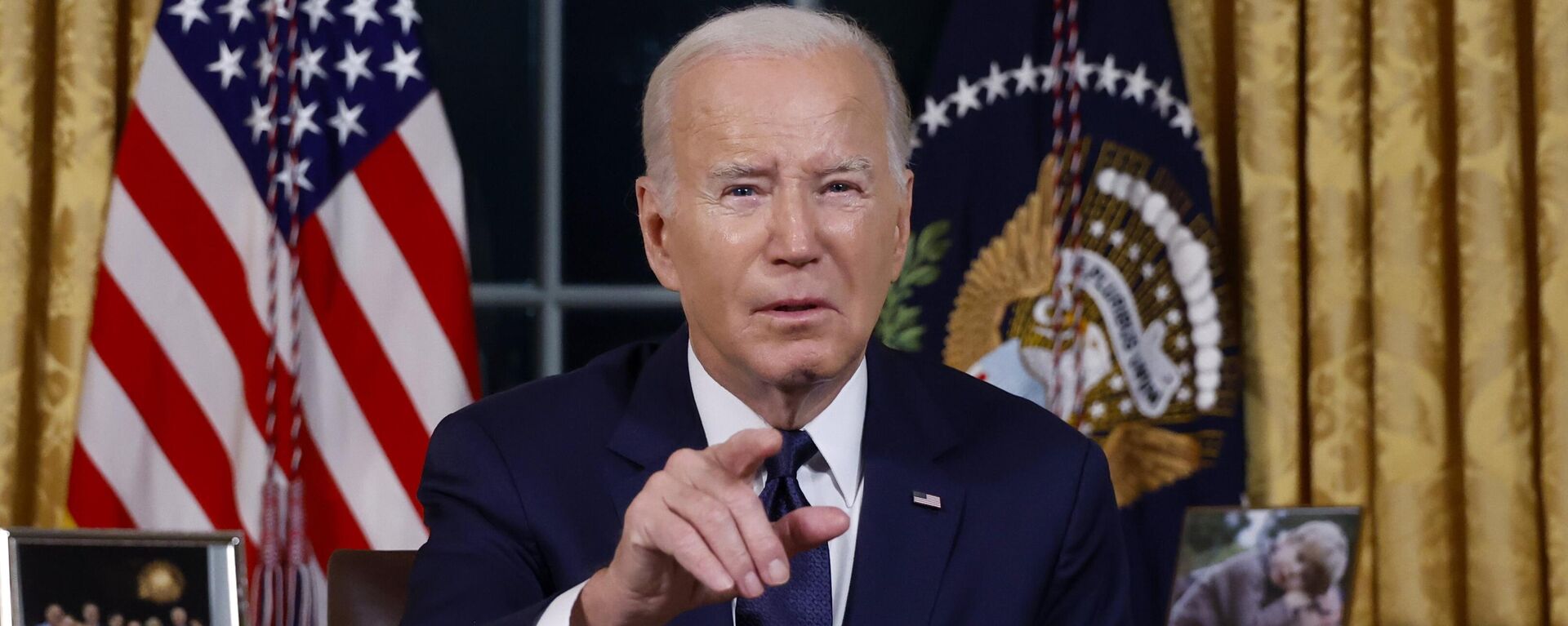
20 November 2023, 16:20 GMT
How Does the Gaza Crisis Affect the US Image?
Per Ozertem, Washington is "definitely negatively affected by the developments in the region." Moreover, divisions are growing within the US over the recent Israeli-Palestinian conflict, the Turkish expert pointed out.
Ozertem has also drawn attention to Secretary of State Antony Blinken's failure to convey Washington's message to Middle Eastern players during his trip to the region, given that the US and Muslim-Arab visions of the crisis differ.
"So in that regard, what we see is that the image of the United States is being tarnished as the situation in the Gaza Strip worsens," the Turkish scholar stressed.
Meanwhile, a Gaza ceasefire remains the major bone of contention. While the Muslim-Arab world is actively advocating for a ceasefire, the US does not want it, echoed Alghannam.
"The Arabs want to ensure the flow of humanitarian support for the Palestinians in Gaza, while the US wants limited humanitarian support," the political scientist went on saying. "The US wants to postpone solving the conflict between Israel and the Palestinians and wants to focus on what they term as 'revitalizing' the Palestinian leadership in the West Bank, while the Arabs see the continuation of the occupation as the main issue that should be addressed. So, certainly, the US diplomatic standing in the Middle East is not good now."

